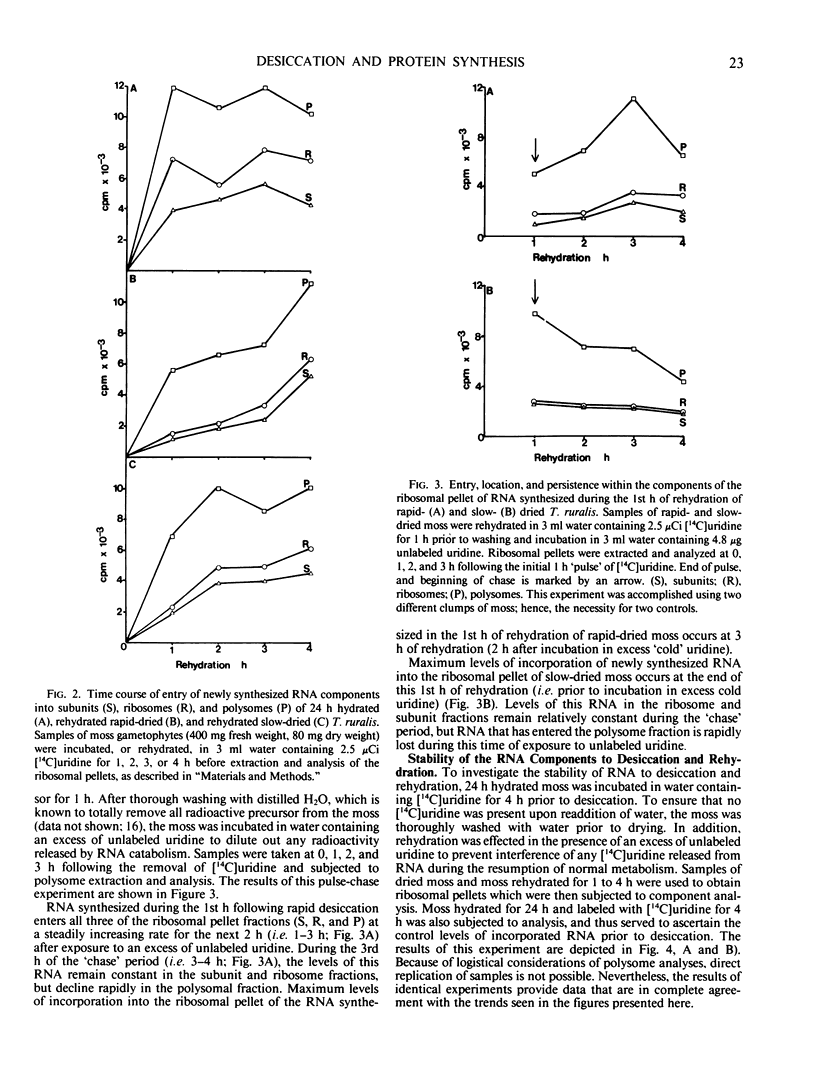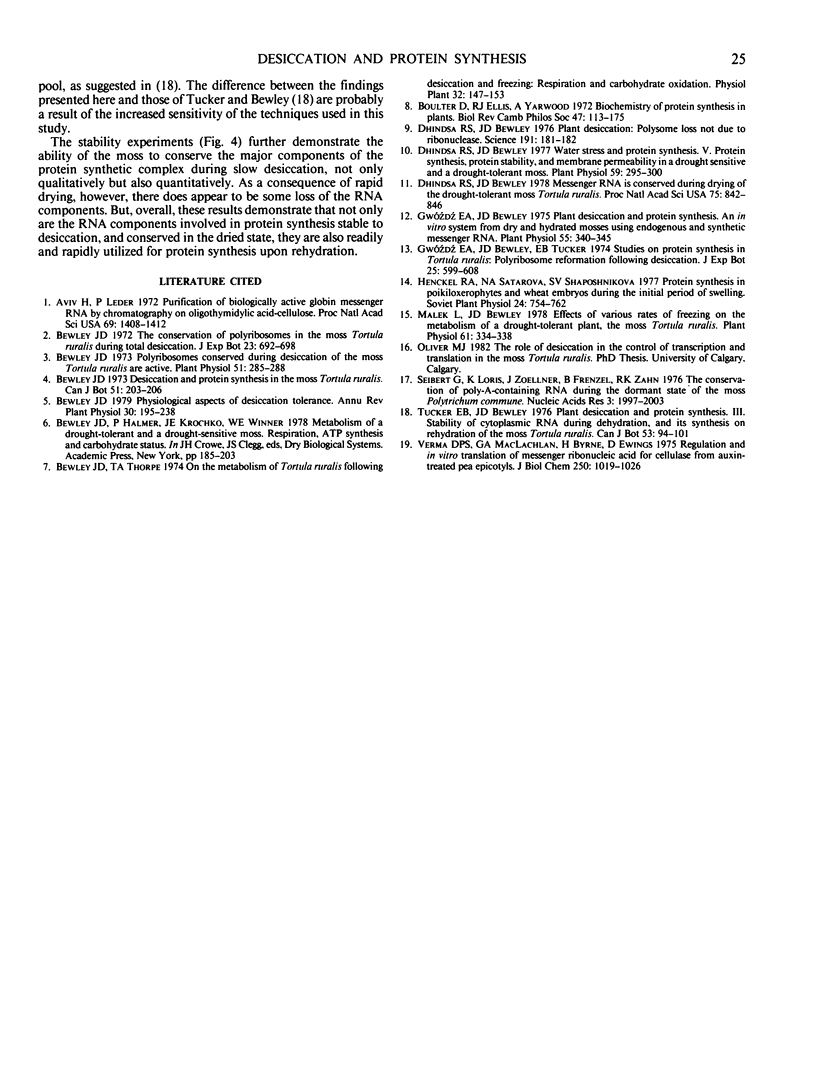Abstract
Upon rehydration of desiccated Tortula ruralis, RNA synthesis is immediately resumed; this resumption is quicker in moss recovering from slow drying than from rapid drying. Newly synthesized RNA enters the protein synthetic complex almost immediately upon rehydration, reaching control steady state levels within 2 hours after slow drying and 6 hours after rapid drying. RNA synthesized in the 1st hour following the readdition of water enters into polysomes much earlier after slow drying than after rapid drying. The RNA components of the protein synthetic complex are stable to desiccation at either slow or rapid speeds, although more so following the former drying regime. Immediately upon rehydration, these conserved RNA are readily utilized for protein synthesis, and continue to be so at least 4 hours thereafter. Hence, the speed of desiccation affects the rate at which RNA is synthesized upon subsequent rehydration, as well as the mode of utilization of that RNA.
Full text
PDF




Selected References
These references are in PubMed. This may not be the complete list of references from this article.
- Aviv H., Leder P. Purification of biologically active globin messenger RNA by chromatography on oligothymidylic acid-cellulose. Proc Natl Acad Sci U S A. 1972 Jun;69(6):1408–1412. doi: 10.1073/pnas.69.6.1408. [DOI] [PMC free article] [PubMed] [Google Scholar]
- Bewley J. D. Polyribosomes Conserved during Desiccation of the Moss Tortula ruralis Are Active. Plant Physiol. 1973 Feb;51(2):285–288. doi: 10.1104/pp.51.2.285. [DOI] [PMC free article] [PubMed] [Google Scholar]
- Dhindsa R. S., Bewley J. D. Messenger RNA is conserved during drying of the drought-tolerant moss Tortula ruralis. Proc Natl Acad Sci U S A. 1978 Feb;75(2):842–846. doi: 10.1073/pnas.75.2.842. [DOI] [PMC free article] [PubMed] [Google Scholar]
- Dhindsa R. S., Bewley J. D. Plant desiccation: polysome loss not due to ribonuclease. Science. 1976 Jan 16;191(4223):181–182. doi: 10.1126/science.1246604. [DOI] [PubMed] [Google Scholar]
- Dhindsa R. S., Bewley J. D. Water Stress and Protein Synthesis: V. Protein Synthesis, Protein Stability, and Membrane Permeability in a Drought-sensitive and a Drought-tolerant Moss. Plant Physiol. 1977 Feb;59(2):295–300. doi: 10.1104/pp.59.2.295. [DOI] [PMC free article] [PubMed] [Google Scholar]
- Gwódź E. A., Bewley J. D. Plant desiccation and protein synthesis: an in vitro system from dry and hydrated mosses using endogenous and synthetic messenger ribonucleic Acid. Plant Physiol. 1975 Feb;55(2):340–345. doi: 10.1104/pp.55.2.340. [DOI] [PMC free article] [PubMed] [Google Scholar]
- Malek L., Bewley J. D. Effects of Various Rates of Freezing on the Metabolism of a Drought-tolerant Plant, the Moss Tortula ruralis. Plant Physiol. 1978 Mar;61(3):334–338. doi: 10.1104/pp.61.3.334. [DOI] [PMC free article] [PubMed] [Google Scholar]
- Seibert G., Loris K., Zöllner J., Frenzel B., Zahn R. K. The conservation of poly-A-containing RNA during the dormant state of the moss Polytrichum commune. Nucleic Acids Res. 1976 Aug;3(8):1997–2003. doi: 10.1093/nar/3.8.1997. [DOI] [PMC free article] [PubMed] [Google Scholar]
- Verma D. P., Maclachlan G. A., Byrne H., Ewings D. Regulation and in vitro translation of messenger ribonucleic acid for cellulase from auxin-treated pea epicotyls. J Biol Chem. 1975 Feb 10;250(3):1019–1026. [PubMed] [Google Scholar]


